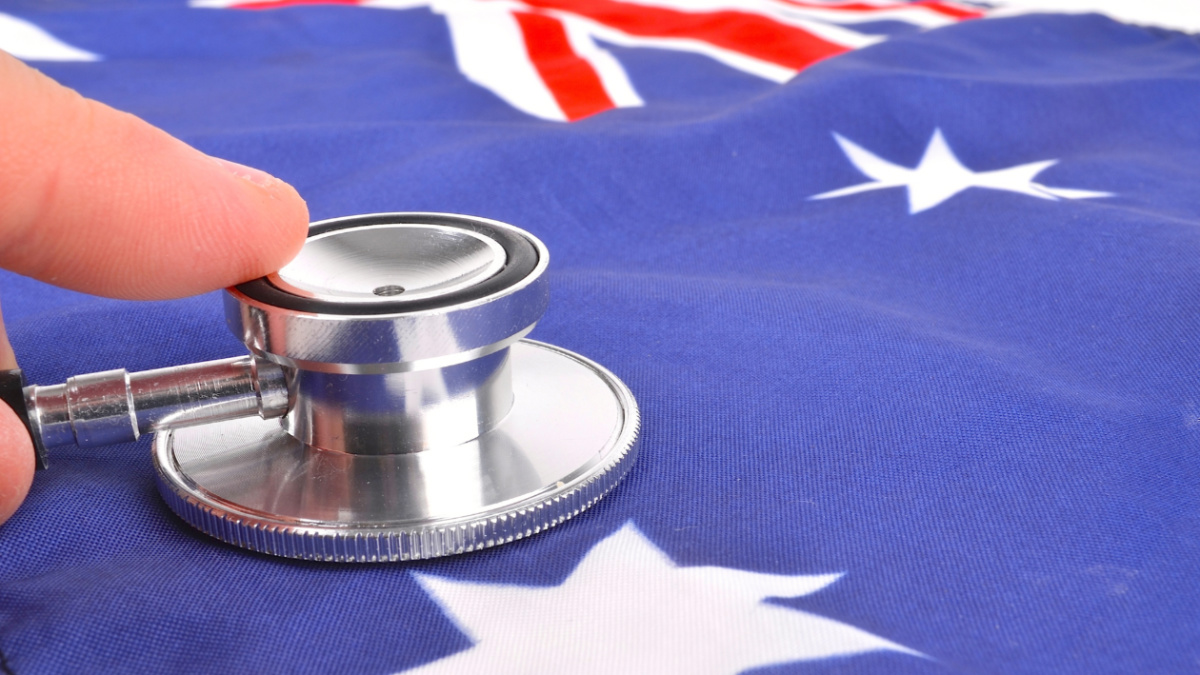Australia proves its reputation as ‘go-to’ destination for clinical trials

Australia has a healthy reputation for clinical trials. Pic: Getty Images
- MTPConnect said Australia has a global reputation as a ‘go to’ destination to conduct clinical trials
- Sector generated $1.6bn for the Australia economy in 2022, up by more than 4% on 2019 figures
- Argenica said cost to conduct trials in Australia is much cheaper and they receive automated approval as an eligible R&D tax activity
Australia has a strong reputation as a top clinical trials destination, generating $1.6bn for the economy in 2022 and growing by more than 4% on 2019 figures, according to MTPConnect’s latest Clinical Trials Sector Report.
MTPConnect CEO Stuart Dignam said growth was achieved despite the 2020 Covid-19 pandemic downturn and underscores Australia’s hard-earned global reputation as a ‘go to’ destination to conduct clinical trials.
“Clinical trials are a critical step in the R&D pipeline for new treatments and as well as ensuring Australian patients receive the best, safest and most effective treatments,” said Dignam.
“These new figures also show clinical trials are more valuable for the economy than ever before.”
MTPConnect is an independent not-for-profit operating life sciences accelerator programs supporting ‘homegrown’ development and commercialisation of cutting-edge medical technology, biotechnology and pharmaceutical innovations.
The organisation’s clinical trials sector report was first published in 2017 and has become a valued resource for state and federal governments, local and international sector participants and financial investors.
‘Can’t take success for granted’
Dignam said while the figures show the value of clinical trials to the economy has increased, there are signs of stagnation in other key metrics and Australia can’t afford to become complacent with its success in the area.
“In 2022, the clinical trials sector in Australia employed 7,700 Australians, slightly less than the 8,000 employed in 2019,” he said.
“Around 90,000 Australians participated in trials, down from 95,000 in 2019 and there were 1,850 trials started, slightly lower than the 1,880 trials started in 2019.”
There’s no doubt Covid-19 restrictions blunted growth, with significant falls in key metrics seen in 2020, noted Dignam, adding:
“While there was a robust rebound in 2021, demonstrating the life science sector’s resilience, we’ve not been able to maintain some of those post-Covid gains into 2022.
“The figures show that we can’t take success for granted and need to keep innovating and investing in order to stay competitive with other international markets like Singapore, the US and South Korea.”
MTPConnect has identified key areas in the sector for ongoing attention including improving efficiency in trial start up, enhancing data transparency, increasing patient awareness to support recruitment and expanding the workforce to support clinical trials growth.
Dignam said that the Australian Government’s National One Stop Shop supports three of MTPConnect’s priorities. That’s an initiative that makes it easier for patients, researchers, industry representatives and sponsors to find, conduct, participate and invest in high quality and ethical research in Australia.
“It presents an opportunity for Australia to leverage its reputation for excellence in early phase trials to become more competitive in attracting late phase trials and deliver more life-saving innovations to Australian patients.”
Patient-centric trials on the rise
Patient-centricity in trials is on the rise, noted Dignam, enhancing engagement and outcomes, while digital health solutions are improving access to trials for our underserved regional and rural populations.
The emergence of precision medicine and innovative trial designs are revolutionising the clinical trial process and attracting greater investment into the clinical trials economy.
“Additionally, with regulatory change and uncertainty in the European Union and United States, Australia is well-positioned to leverage its faster trial startup environment to capture a greater share of the global market for medical device trials,” said the MTPConnect CEO.
Dignam emphasised that it was imperative for Australia to ramp up investment in clinical trials to uphold its global competitiveness and continue delivering world-class healthcare to its people.
In another move to boost innovation, MTPConnect and Advanced Robotics for Manufacturing (ARM) Hub unveiled a joint accelerator named the Biomedical AI Sprints Accelerator (BASA) at the BIO International Convention held in San Diego earlier this year.
BASA aims to help high growth Australian biomedical companies harness the power of data and artificial intelligence (AI). The accelerator will help address AI expertise gaps, which MTPConnect’s recent skills gap analysis work identified as potentially holding back growth of Australia’s life sciences sector.
In Australia there are several ASX companies conducting clinical trials. Stockhead spoke with a couple of stand-outs.
Argenica Therapeutics (ASX:AGN)
AGN is a brain injury-focused clinical-stage biotech, spun-out from the University of WA and Perth-based The Perron Institute for Neurological and Translational Science.
The company is developing its lead drug candidate ARG-007, which is a cationic, arginine-rich peptide with neuroprotective properties designed to protect brain cells from injury after a stroke and other neurological conditions.
AGN is currently conducting a Phase 2 double-blinded, randomised, placebo-controlled, clinical trial in acute ischaemic stroke patients presenting to emergency departments around Australia.
AGN CEO and managing director Dr Liz Dallimore told Stockhead 10 hospitals were participating in the trial across Queensland, New South Wales, Victoria, South Australia and Western Australia.
“Argenica will recruit 92 patients into the trial to primarily test the safety of ARG-007 in stroke patients, but will also assess the ability of ARG-007 to reduce brain injury in these patients following a stroke, compared to the placebo group,” she said.
“Australia has world class stroke neurologists and stroke trial teams, globally recognised for the quality of trials conducted in emergency departments.
“Australia’s National Mutual Acceptance (NMA) Scheme and speed for ethic approval is very attractive.”
She said the cost to conduct trials in Australia is much cheaper and they receive automated approval as an eligible R&D tax activity but there was still room for improvement.
“There are still challenges in Australia in regard to governance approval at individual hospital sites which resulted in significant delays in activating some clinical trial sites in Argenica’s trial,” she said.
Dallimore added that in doing the trial only in Australia AGN did seek feedback from the US Food and Drug Administration (FDA) via a Type B pre-IND meeting to ensure that its trial protocol was appropriate, which was very important if a company planned to do later stage trials in the US.
“The FDA was very happy for a trial to be conducted only in Australia for a Phase 2. In fact, I’ve seen US companies do this and the FDA does have industry guidance confirming they accept trials conducted in other jurisdictions.”
Neurotech (ASX:NTI)
This clinical-stage biopharmaceutical development company is focused predominantly on paediatric neurological disorders, where there is persistent neuroinflammation.
Executive director Dr Thomas Duthy told Stockhead the company had conducted four clinical trials in Australia of its lead broad-spectrum cannabinoid drug therapy NTI164 for different indications, with all reaching their primary endpoints.
These include two studies into autism spectrum disorder (ASD), led by Professor Michael Fahey, head of the paediatric neurology unit at Monash Medical Centre.
Fahey was the chief investigator of NTI’s 14 patient Phase 1/2 ASD, and a 54 patient Phase 2/3 ASD trial.
NTI also undertook a 14 patient Phase 1/2 Rett Syndrome trial with Associate Professor Carolyn Ellaway – principal trial investigator senior staff specialist at The Children’s Hospital at Westmead, Sydney.
The company said patients were recruited through Professor Ellaway’s clinic at Westmead. In May, NTI announced further primary and secondary endpoint analysis of the trial had highlighted additional benefits.
NTI has also completed a Phase 1/2 Paediatric Autoimmune Neuropsychiatric Disorders Associated with Streptococcal Infections (PANDAS) and Paediatric Acute-Onset Neuropsychiatric Syndrome (PANS) clinical trial – collectively the PANDAS/PANS clinical trial – in Australia.
The 15-patient trial co-principal investigator is Professor of Paediatric Neurology, University of Sydney and Children’s Hospital at Westmead Russell Dale.
“We have expressly targeted Australia for our initial proof of concept Phase 1/2 clinical trials conducted in children principally because of the significant cost savings and lack of competition from other drug developers seeking paediatric patients,” Duthy said.
“Overall there is also a willingness from key clinicians to trial therapies like NTI164, where the safety can be demonstrated and the green light has been given via human ethics committee clearance and notification to the Therapeutic Goods Administration via the Clinical Trials Notification (CTN) Scheme.”
Coming up, more ASX companies undertaking clinical trials in Australia
At Stockhead, we tell it like it is. While Neurotech Internation is a Stockhead advertiser, the company did not sponsor this article.

UNLOCK INSIGHTS
Discover the untold stories of emerging ASX stocks.
Daily news and expert analysis, it's free to subscribe.
By proceeding, you confirm you understand that we handle personal information in accordance with our Privacy Policy.








